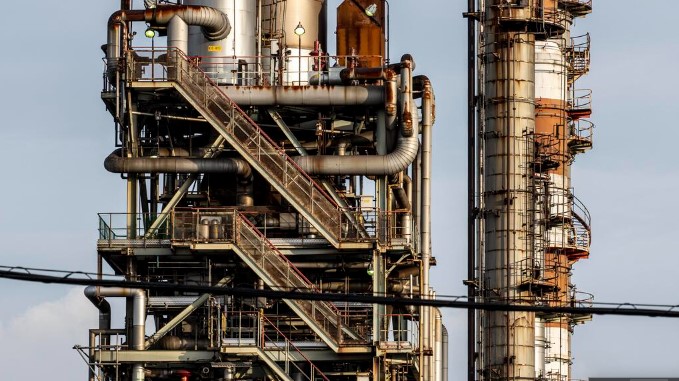In the sprawling landscape of Western Canada’s oil and gas sector, where operations are as intricate as they are critical, every component plays a vital role. Among these, the mechanical insulator is a cornerstone of safety, efficiency, and sustainability. Mechanical insulation serves as a silent guardian from pipelines to processing facilities, protecting equipment, conserving energy, and mitigating risks. In this blog post, we delve into why the mechanical insulator is indispensable in oil and gas operations, exploring its significance across various facets of the industry.
Enhancing Equipment Longevity:
Mechanical insulation acts as a protective shield for equipment in oil and gas operations. By insulating pipes, valves, and vessels, it shields them from extreme temperatures, corrosive substances, and mechanical wear and tear. This insulation extends the lifespan of critical components, reducing the frequency of repairs and replacements, and thereby optimizing operational efficiency.
Preventing Energy Loss:
In a sector where energy consumption is substantial, minimizing heat loss and optimizing energy efficiency are paramount. Mechanical insulation serves as a barrier, preventing heat transfer between hot and cold surfaces. Reducing heat loss during transportation and storage processes, it contributes to significant energy savings, thereby enhancing the overall sustainability of oil and gas operations.
Ensuring Process Stability:
Consistency is key in oil and gas operations, where even minor fluctuations can have significant repercussions. Mechanical insulation plays a crucial role in maintaining process stability by controlling temperature variations within equipment and pipelines. This ensures that fluids flow smoothly, reactions proceed as intended, and overall operational performance remains consistent. Mitigating Safety Hazards:
Safety is non-negotiable in the oil and gas industry, where the slightest oversight can lead to catastrophic consequences. Mechanical insulation serves as a barrier against potential safety hazards, such as fire, leakage, and personnel injuries. By containing hazardous substances and minimizing the risk of equipment failure, it creates a safer working environment for employees and safeguards surrounding communities.
Facilitating Regulatory Compliance:
Stringent regulations govern the oil and gas industry, imposing strict requirements on safety standards and environmental protection measures. Mechanical insulation plays a pivotal role in ensuring compliance with these regulations. By preventing emissions, reducing energy consumption, and minimizing environmental impact, it helps companies adhere to regulatory mandates and avoid costly penalties.
Optimizing Operational Efficiency:
Efficiency is the cornerstone of success in oil and gas operations, where margins are often razor-thin. Mechanical insulation contributes to operational efficiency by minimizing heat loss, reducing downtime due to equipment failures, and streamlining maintenance processes. This translates into cost savings, increased productivity, and a competitive edge in the market.
Enabling Temperature Control:
Temperature control is essential in various stages of oil and gas operations, from extraction to refining. Mechanical insulation provides precise temperature control by insulating equipment and pipelines, ensuring that fluids remain at optimal temperatures throughout the process. This not only enhances product quality but also facilitates downstream operations such as separation, distillation, and transportation.
Supporting Environmental Sustainability:
In an era of heightened environmental consciousness, sustainability has become a core priority for oil and gas companies. Mechanical insulation contributes to environmental sustainability by reducing energy consumption, lowering greenhouse gas emissions, and minimizing waste generation. By adopting insulation practices that prioritize environmental stewardship, companies can demonstrate their commitment to sustainable business practices.
Adapting to Technological Advancements:
As technology continues to evolve, so do the requirements and standards within the oil and gas industry. Mechanical insulation plays a crucial role in adapting to technological advancements by incorporating innovative materials, designs, and installation techniques. This ensures that oil and gas operations remain at the forefront of technological progress while maximizing efficiency and safety.
Investing in Long-Term Resilience:
In the volatile landscape of the oil and gas industry, resilience is essential for survival. Mechanical insulation represents a long-term investment in resilience, offering protection against external factors such as fluctuating market conditions, regulatory changes, and unforeseen challenges. By investing in quality insulation solutions, companies fortify their infrastructure, mitigate risks, and position themselves for sustained success.
Frequently Asked Questions (FAQs)
Q: Why is mechanical insulation necessary in oil and gas operations?
A: Mechanical insulation is essential in oil and gas operations for several reasons. It protects equipment from extreme temperatures, corrosion, and mechanical damage, enhances energy efficiency by minimizing heat loss, ensures process stability, and mitigates safety hazards, thereby contributing to operational reliability and sustainability.
Q: What types of equipment in oil and gas operations require mechanical insulation?
A: Various equipment components such as pipes, valves, vessels, tanks, and process units require mechanical insulation to maintain temperature control, prevent energy loss, and protect against corrosion and mechanical wear.
Q: How does mechanical insulation contribute to energy efficiency in oil and gas operations?
A: Mechanical insulation acts as a barrier against heat transfer, reducing energy loss during transportation, storage, and processing of fluids. By minimizing heat loss, it helps optimize energy usage, lower operating costs, and reduce greenhouse gas emissions.
Q: What materials are commonly used for mechanical insulation in the oil and gas industry?
A: Common insulation materials include fiberglass, mineral wool, foam plastics (such as polyurethane and polystyrene), and aerogels. The choice of material depends on factors such as temperature range, chemical compatibility, mechanical strength, and insulation thickness requirements.
Conclusion:
In the intricate web of processes and operations that define the oil and gas industry, mechanical insulation emerges as a linchpin of reliability, efficiency, and sustainability. From safeguarding equipment to optimizing energy usage, its importance cannot be overstated. As companies navigate the complexities of the industry, investing in quality mechanical insulation solutions is not just a prudent choice but a strategic imperative for long-term success. By recognizing the critical role of insulation in oil and gas operations, companies can enhance safety, efficiency, and environmental stewardship while staying ahead in an ever-evolving landscape.




